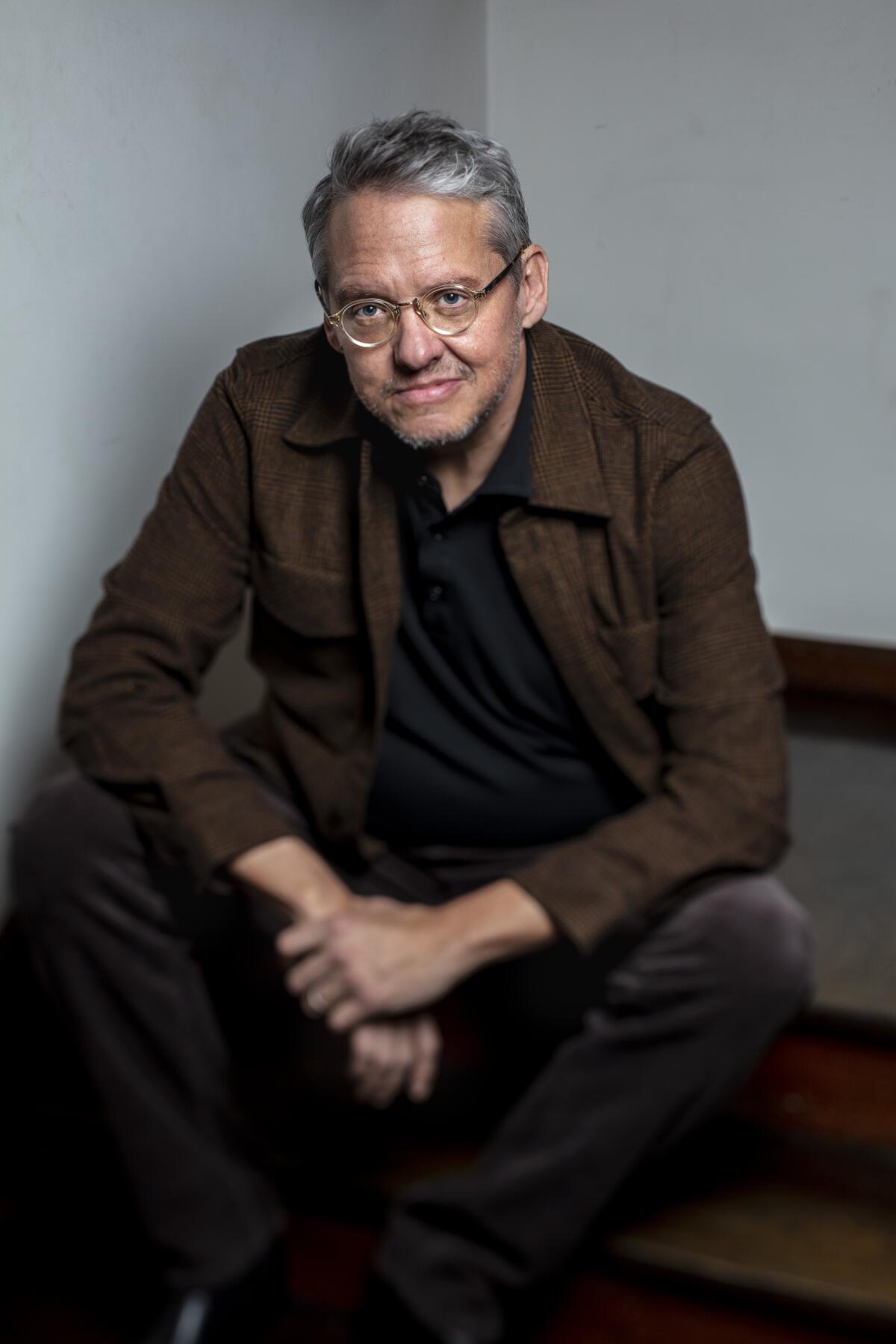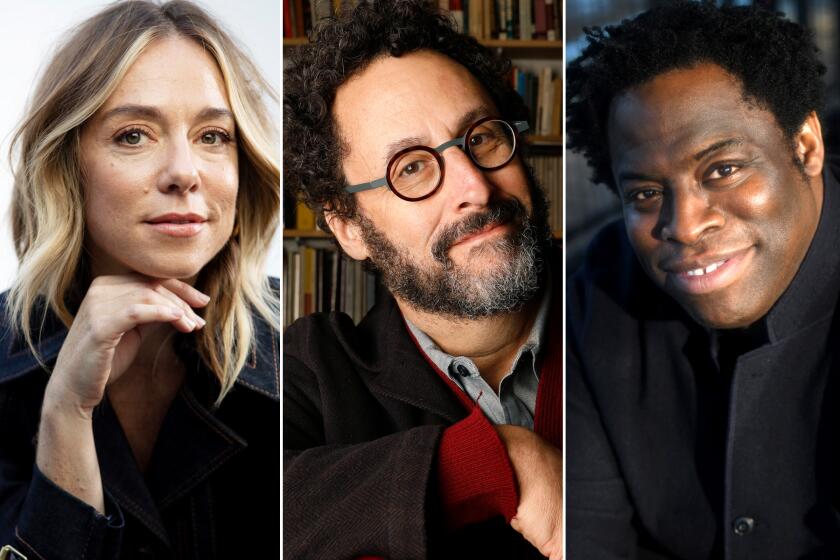Adam McKay sticks to his vision and blows up the world

- Share via
Anytime you write a farcical comedy that ends with a dramatic depiction of the world ending and every main character dying, you know it’s not going to be an easy script to sell and get made. In fact, my No. 1 piece of advice to any aspiring screenwriter out there looking to get a movie made would be to not write a farcical comedy that ends with a dramatic depiction of the world ending.
But in 2019 I had just spent a year desperately trying to figure out how to tell the story of our real world’s bizarre and terrifying collective inaction on the climate crisis. It had me shook in a big way and after trying many different stories on for size I had no choice but to commit to the idea that seemed like it could best cut through the buzzy white noise of our culture.
Laughter, tragedy and big feelings. Those would be the pillars of this story. And of course an ending that breaks the traditional rules of genre in a fairly aggressive and naked way.
Fortunately, Jennifer Lawrence and the great Rob Morgan, who I had written the characters of PhD candidate Kate Dibiasky and Dr. Teddy Oglethorpe for, both reacted to the script with excitement. With strong actors attached, my producer Kevin Messick felt like it was time to take the leap and send the spec script out to potential buyers.
Almost immediately we received clear and definitive passes from several studio heads. “I loved the read but there’s no way we can make this unless you change the ending,” said one executive who I have known for almost 20 years.
And if there was one thing I was sure of, it’s that we weren’t going to change the ending.
In their own words: Tony Kushner, Rebecca Hall, Jeymes Samuel and other screenwriters take us on a journey through writing their film scripts.
The main reason we wanted to make the movie was because of the ending. After decades of guaranteed happy endings from big Hollywood movies, we really wanted to show that nifty feel-good conclusions are not guaranteed without characters actually, you know, doing something.
But even more important, we had a suspicion that audiences could handle it and might even be excited by the formula being broken.
Meanwhile, more passes rolled in and a few “We’d like to talk to Adam about his vision for the movie” responses. Note: These are really just dressed up No’s most of the time.
After a half a dozen passes in a day, for the first time we began to get a little worried. Had we gone too far with this script?
Probably. But aren’t we living in times that call for going a little too far? If not now, then when?
On Day 2 after sending the script out, finally a studio said they loved it and wanted to make it with the ending as is.
Then another and another. We had three very interested buyers.
After the wave of relief and celebration passed over us, we then had to determine what the best home for this story would be. It was always specifically written to be a big worldwide movie about what is probably the biggest worldwide story ever. And even though I am a firm believer in seeing movies in a theater, this film was different. One of the interested buyers turned out to be Netflix. By that time the total audience they could reach was estimated at over 500 million people across dozens and dozens of countries.
But at the same time, a traditional studio had also stepped up in a very real and passionate way for a large theatrical release.
After a fair amount of agonizing, we finally decided that this particular movie would be perfect for Netflix. (Little did we know that the pandemic was mere months away from hitting and our choice would turn out to be the right one in ways we couldn’t have imagined.)
Later, when Leonardo DiCaprio, Meryl Streep, Cate Blanchett and Tyler Perry came onto the project, more and more we saw the potential to tell a truly gigantic story that would hopefully start a conversation and make some noise. Netflix and their marketing department stepped up in a huge way and, after we premiered, we found the movie being a part of the national conversation in countries as diverse as Pakistan, Ukraine, Nigeria, Brazil and Cambodia.
More to Read
Sign up for The Envelope
Get exclusive awards season news, in-depth interviews and columnist Glenn Whipp’s must-read analysis straight to your inbox.
You may occasionally receive promotional content from the Los Angeles Times.







